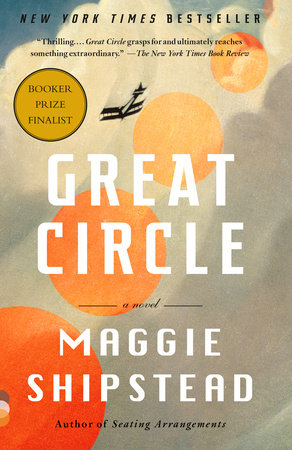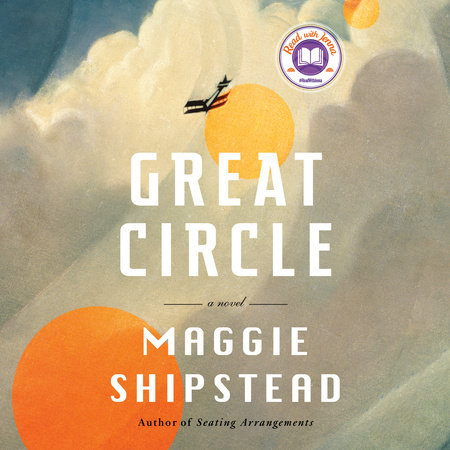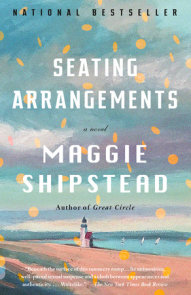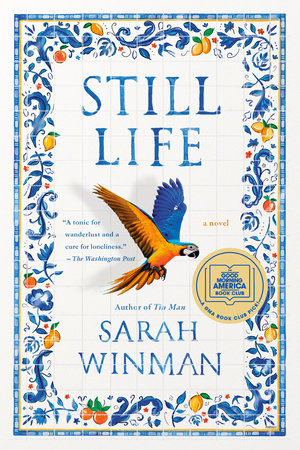

Great Circle: A Read with Jenna Pick
By Maggie Shipstead
By Maggie Shipstead
By Maggie Shipstead
By Maggie Shipstead
By Maggie Shipstead
Read by Cassandra Campbell and Alex McKenna
By Maggie Shipstead
Read by Cassandra Campbell and Alex McKenna
Category: Literary Fiction | Women's Fiction
Category: Literary Fiction | Women's Fiction
Category: Literary Fiction | Women's Fiction | Audiobooks

-
$19.00
Apr 05, 2022 | ISBN 9781984897701
-
May 04, 2021 | ISBN 9780525656982
-
May 04, 2021 | ISBN 9780593155059
1517 Minutes
Buy the Audiobook Download:
YOU MAY ALSO LIKE
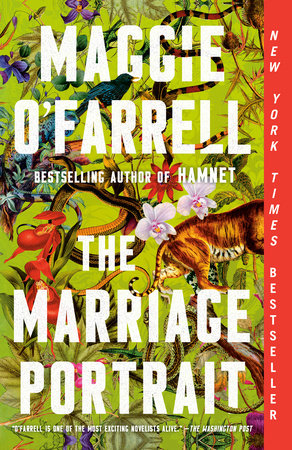
The Marriage Portrait: Reese’s Book Club
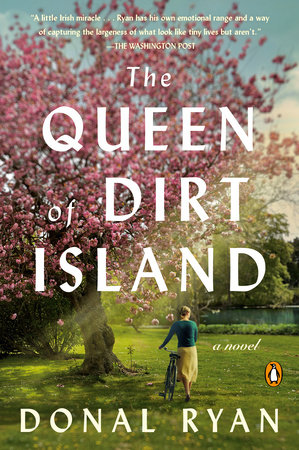
The Queen of Dirt Island
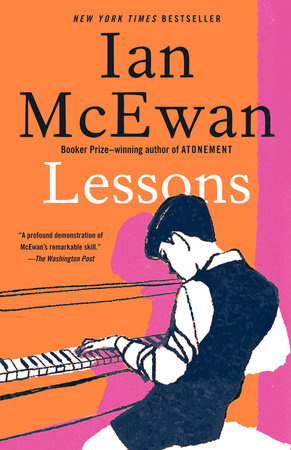
Lessons
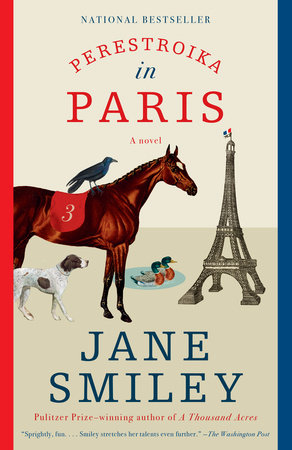
Perestroika in Paris
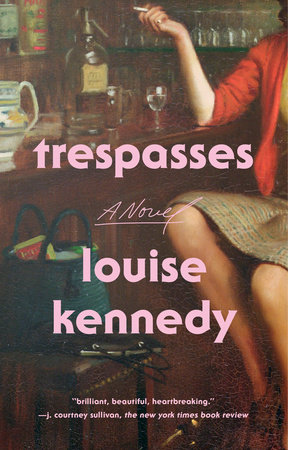
Trespasses
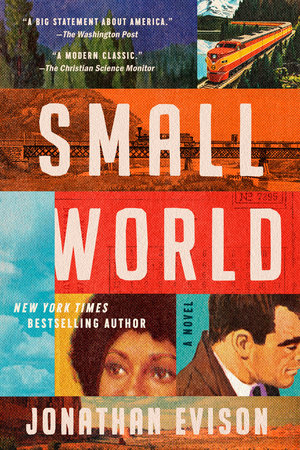
Small World
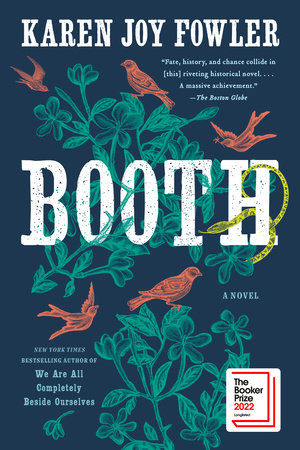
Booth
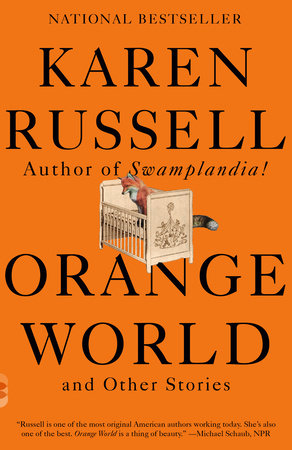
Orange World and Other Stories

The Lonely Hearts Hotel
Praise
WOMEN’S PRIZE FOR FICTION NOMINEE • BOOKER PRIZE FINALIST • ONE OF THE BEST BOOKS OF THE YEAR: TIME, NPR, Washington Post, EW, Boston Globe, LitHub, and more
“Great Circle is a masterpiece . . . one of the best books I’ve ever read”
—J. Courtney Sullivan
“A sumptuous epic . . . exhilarating . . . this book delivers a series of ahas, of sweet, provocative points of contemplation that make the reader feel alive.”
—Leigh Haber, Oprah Daily
“A soaring work of historical fiction . . . So convincingly does Shipstead stitch her fictional heroine into the daring flight paths of early aviators that you’ll be convinced that you remember the tragic day her plane disappeared. Great Circle is a relentlessly exciting story about a woman maneuvering her way between tradition and prejudice to get what she wants. It’s also a culturally rich story that takes full advantage of its extended length to explore the changing landscape of the 20th century. My top recommendation for this summer.”
—Ron Charles, The Washington Post
“A feat of a story in every sense.”
—Entertainment Weekly
“Shipstead’s writing soars and dips with dizzying flair . . . With detailed brilliance, she lavishes heart and empathy on every character (save one villain), no matter how small their role. Many authors attempting to create an epic falter at the end, but Shipstead never wavers, pulls out a twist or two that feel fully earned, and then sticks the landing. An expansive story that covers more than a century and seems to encapsulate the whole wide world. ”
—Boston Globe
“Thrilling . . . Great Circle starts high and maintains altitude. One might say it soars. An action-packed book rich with character . . . Great Circle grasps for and ultimately reaches something extraordinary. It pulls off this feat through individual sentences and sensations—by getting each secondary and tertiary character right . . . What’s so impressive is how deeply we come to care about each of these people, and how the shape and texture of each of their stories collide to build a story all its own. It’s at the level of the sentence and the scene, the small but unforgettable salient detail, that books finally succeed or fail. In that, Great Circle is consistently, often breathtakingly, sound.”
—Lynn Steger Strong, The New York Times Book Review
“Shipstead’s eye for detail, character and the moments that tell all make this a true literary achievement.”
—Zibby Owens, Good Morning America
“Great Circle is an epic trip—through Prohibition and World War II, from Montana to London to present-day Hollywood—and you’ll relish every minute.”
—People
“Swinging from one century to the next, from the moneyed splendor of cities to the shifting Antarctic ice, Shipstead’s prose overflows with meticulous detail. Shipstead’s intellect and knowledge are on full display . . . One finds twists and surprises, unexpected connections—though the work’s ultimate interest mirrors a quality shared by the Graves twins: a natural, boundless curiosity.”
—Minneapolis Star Tribune
“Bestselling novelist Maggie Shipstead was struggling to depict a female adventurer. So she became one. Shipstead’s debut, Seating Arrangements, [sealed] her reputation as an impeccable craftswoman of upmarket beach reads . . . But the stakes of Great Circle are higher—for its heroine, literally life or death. Though Shipstead never learned to fly herself, she aligned with her main character Marian Graves in more important ways . . . She is interested in testing her limits.”
—Los Angeles Times
“Glitz and guts square off in Great Circle: a tale of two women set apart by a century, fighting to retain control of their own lives in a society that demands subservience. Shipstead is adept at writing so vividly, the reader can feel the thrill and pain of her characters. Cunningly crafted. . . richly layered, a joy to read . . . riveting.”
—The Spokesman-Review
“Marian Graves’s 1950s quest, a pole-to-pole route around the globe, will not be truly finished until twenty-first-century Hadley Baxter is cast as the film version of Marian—not because the two women share history, letters, or mementos (those common tropes of historical fiction), but because of their shared dissatisfaction with the patriarchal system guiding their lives . . . A novel with rich prose and even richer symbolism.”
—Bethanne Patrick, Virtuoso
“In one word: fantastic. Shipstead’s writing is absolutely stunning, each character coming to life through her mesmerizing descriptions and masterful imagery. Each high is ridden along with Marian, each low felt intensely and deeply as though it were happening in real-time. Even the most technical details—such as complexities regarding airplanes and machinery—jump off the page, drawing the reader in. Shipstead sets the scene of each location striking beauty and detail . . . She has created a world so unique and filled with such riveting characters that it is devastating to have to leave them behind.”
—Ally Kutz, Erie Reader
“The Marian portions rove from Montana to Manhattan to Scotland and Antarctica, and read like a carnival of early-20th-century American history, packed with bootleggers, treacherous boxcar rides, and tragic shipwrecks. The Hadley chapters offer a delectable dissection of life as a celebrity, serving up an intelligent skewering of the Hollywood machine and allowing the book to take flight.”
—Vogue
“A breathtaking epic . . . This is a stunning feat.”
—Publishers Weekly [starred review]
“A fat, juicy peach of a novel . . . A tremendously well-written book, epic in spirit and scope, swooping across continents and through time so effortlessly that it belies the seven years it apparently took to complete.”
—The Telegraph [UK]
“A sweeping, swashbuckling book, full of colour and grand destiny . . . glorious mythmaking. This is a novel of magnitude in all senses: themes, size, scope and ambition. Its literary wingspan stretches from the tectonic bump-and-grind of the ice age to the erotic imaginings of internet fan fiction . . . The joy of this dynamic, soaring novel is not a welcome extra but its very engine. Most novelists have their limits and cut their cloth accordingly. Shipstead is a writer who can vividly summon whatever she chooses, taking the reader deep inside the worlds she creates . . . Her writing is confident and knowing; her descriptions of light and air sometimes beautiful. Marian Graves is a character so real that I twice googled her to check.”
—Financial Times [UK]
“The destinies of [Shipstead’s] unforgettable characters intersect in ways that reverberate through a hundred years of story. Whether Shipstead is creating scenes in the Prohibition-era American West, in wartime London, or on a Hollywood movie set, her research is as invisible as it should be, allowing a fully immersive experience. Ingeniously structured and so damn entertaining; this novel is as ambitious as its heroines—but it never falls from the sky.”
—Kirkus Reviews [starred review]
“Highly recommended—intricately designed, [with a] compelling cast of characters. As Hadley learns some of Marian’s secrets, readers will wonder how much we can truly know anyone.”
—Library Journal [starred review]
“Transcendent . . . A rolling, roiling epic . . . Through the interwoven stories of impetuous flyer Marian Graves and flavor-of-the-month actress Hadley Baxter, Shipstead ponders the motivating forces behind acts of daring defiance, self-fulfillment and self-destruction. An ambitious, soaring saga—[Shipstead] takes her characters to dizzying heights, drawing readers into lives of courage and mystery.”
—Booklist
“Inherently epic . . .Shipstead sweeps readers from earth to sky and back again . . . Underpinning it all is a reverence for nature, thrumming in the forests of Montana, the jagged peaks of Alaska and the stupefying ice shelves of the Antarctic. Shipstead’s exhilarating, masterful depictions of Marian’s flights feel like shared experiences that invite readers to contemplate both magnitude and majesty. Great Circle is sure to give even firmly earthbound readers a new appreciation for those who are compelled ever skyward.”
–BookPage [starred review]
Awards
Booker Prize SHORTLIST 2021
Historical Writers’ Association Non-Fiction Crown Award SHORTLIST 2022
Women’s Prize for Fiction SHORTLIST 2022
21 Books You’ve Been Meaning to Read
Just for joining you’ll get personalized recommendations on your dashboard daily and features only for members.
Find Out More Join Now Sign In






